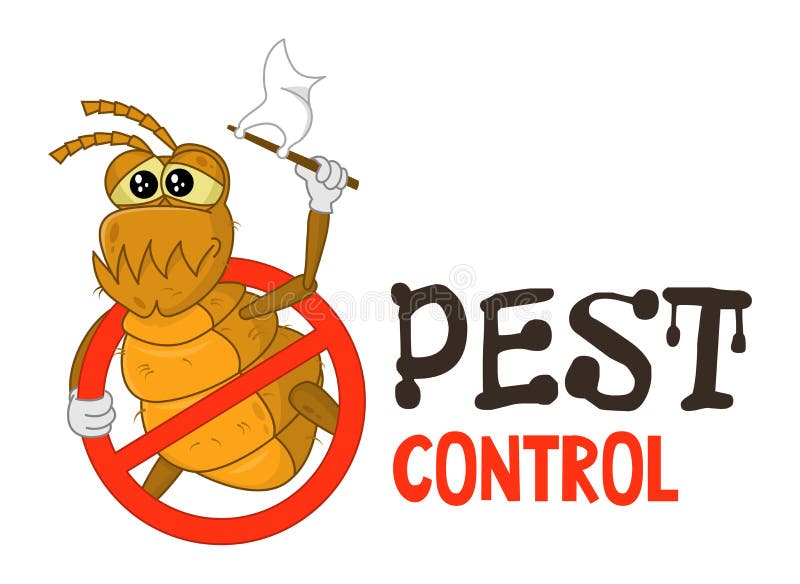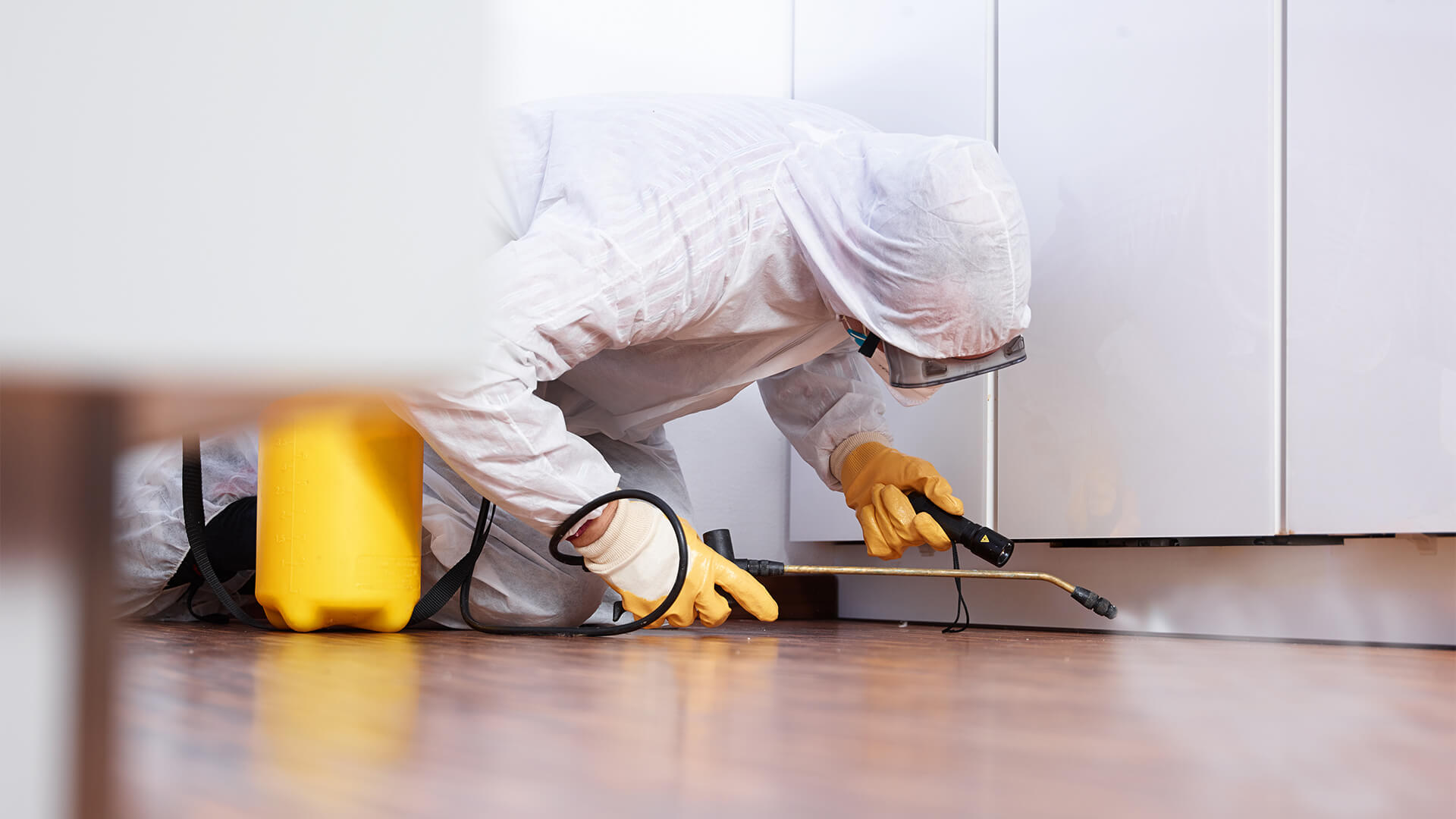Safe and Dependable Pest Control for Lasting Protection
Efficient insect management requires a multifaceted strategy that stabilizes environmental integrity with the need for efficient insect reductions. The subtleties of these methods might not be promptly clear, prompting a closer assessment of the methods that can lead to sustainable parasite control results.
Understanding Pest Control Approaches
Bug control encompasses a selection of techniques focused on handling and removing unwanted bugs and rodents that can intimidate both health and residential property. Comprehending these techniques is critical for effective pest monitoring.
The primary groups of pest control approaches consist of mechanical, organic, and chemical strategies. Mechanical methods entail physical barriers and traps to stop insect entry and capture undesirable varieties. Utilizing displays on home windows or employing sticky traps can dramatically decrease bug populaces without presenting hazardous materials - exterminator coquitlam.

Chemical insect control is usually one of the most identified approach, making use of chemicals to eliminate bugs. These chemicals can be efficient however need to be utilized with caution to avoid damaging impacts on non-target species and the atmosphere.
Benefits of Eco-Friendly Solutions
Just how can environment-friendly remedies change insect control techniques? The adoption of green insect control approaches uses various advantages, considerably boosting the effectiveness and safety and security of pest administration.

One more benefit is the favorable impact on local biodiversity. Environment-friendly remedies are made to target particular parasites while maintaining advantageous bugs and wildlife, promoting a balanced environment. This strategy straightens with the expanding customer need for lasting techniques, boosting the online reputation of pest control suppliers.
Integrated Bug Monitoring Approaches
The execution of green remedies normally results in the fostering of Integrated Parasite Administration (IPM) methods, which even more boost pest control efficacy. IPM is a holistic strategy that incorporates several strategies to manage bug populaces while minimizing environmental influence. This strategy emphasizes making use of organic, cultural, mechanical, and chemical controls, guaranteeing a balanced and lasting approach of bug administration.
One fundamental facet of IPM is the complete analysis of pest activity and ecological conditions. By monitoring parasite populations and identifying their life process, specialists can implement targeted treatments that disrupt the parasite's habitat or lifecycle, reducing dependence on chemical pesticides. Furthermore, social methods such as crop turning and environment control can significantly lessen bug establishment and recreation.
Another important component is using organic control agents, such as beneficial bugs or bacteria, which can normally subdue insect populaces. When chemical applications are required, IPM focuses on making use of low-risk pesticides and uses them selectively, reducing direct exposure to non-target organisms and people.
Incorporating IPM techniques not just boosts insect control efficiency but likewise advertises a safer environment, straightening with the growing demand for sustainable techniques in insect administration.
Safe Practices for Home Owners
Understanding the significance of risk-free techniques in parasite control can equip house owners to successfully manage insect issues while protecting their wellness and the setting. Implementing non-toxic techniques and safety nets is vital in decreasing direct exposure to harmful chemicals.
Home owners must first evaluate their environment for problems that draw in insects, such as standing water, food, and clutter waste. Regularly cleansing and sealing access points can deter parasites from attacking the home. Using all-natural deterrents, such as crucial oils or diatomaceous planet, can give browse around this site reliable alternatives to chemical pesticides.
When chemical therapies are needed, house owners ought to select products that are especially identified as safe for household use. It is important to adhere to application guidelines carefully to stay clear of overexposure. Making use of targeted therapies in areas where bugs are identified, rather than covering spraying, can substantially decrease chemical use.
Finally, maintaining open communication with bug control professionals is crucial. Homeowners should ask about the security of items used and request green options whenever feasible. By taking on these safe methods, home owners can create a healthier living atmosphere while properly managing pest concerns.

Tips for Long-Term Security
Establishing a pest monitoring approach that emphasizes long-term protection can significantly improve the efficiency of the risk-free methods formerly reviewed. To investigate this site attain this, home owners need to implement routine inspections of their residential property, concentrating on concealed locations such as attic rooms, basements, and crawl spaces. Early detection of parasite task is critical in preventing infestations from holding.
In addition, keeping a tidy setting is crucial. This includes proper food storage, promptly cleansing spills, and regularly disposing of garbage. These techniques minimize attractants that draw insects right into the home. Securing entry factors, such as fractures around windows and doors, can successfully block possible parasite accessibility.
Landscape design ought to also be taken into consideration; keeping plants cut and preserving a range between plant life and the home reduces concealing areas for pests. Using natural deterrents, such as necessary oils or diatomaceous earth, can further dissuade problems without turning to harsh chemicals.
Finally, collaborating with an expert parasite control service for regular evaluations can offer an extra layer of protection. These experts can use customized recommendations and advanced therapies, ensuring that your home remains shielded against insects in the lengthy term.
Verdict
To conclude, risk-free and reliable bug control needs a diverse strategy that stresses green techniques and integrated insect monitoring. By implementing natural deterrents, conducting routine assessments, and keeping correct hygiene, property owners can considerably decrease bug populations while securing helpful insects and the environment. Collaboration with professional pest control services enhances the performance of these strategies, ensuring tailored services that offer long lasting protection and assurance against future problems.
Reliable bug administration needs a diverse method that balances eco-friendly honesty with the requirement for effective pest suppression. The adoption of eco-friendly parasite control approaches uses various advantages, dramatically improving the performance and security of insect management.The execution of environment-friendly services normally leads to the adoption of Integrated Pest Management (IPM) strategies, which further enhance pest control efficiency. exterminator coquitlam. By Read More Here checking insect populaces and determining their life cycles, experts can apply targeted treatments that interrupt the parasite's environment or lifecycle, decreasing dependence on chemical pesticides.In conclusion, secure and trustworthy insect control calls for a multifaceted technique that emphasizes environmentally friendly approaches and integrated parasite management